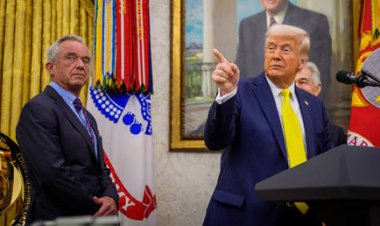Top appropriators clinch deal on government funding framework
Leading negotiators didn’t release government funding totals in announcing the deal, but appropriators have largely settled on an $858 billion defense budget in recent weeks.

Top appropriators struck a deal Tuesday night on a government funding framework critical to finalizing a mammoth year-end spending package.
In a statement, retiring Senate Appropriations Chair Patrick Leahy (D-Vt.) said appropriators have “reached a bipartisan, bicameral framework that should allow us to finish an omnibus appropriations bill that can pass the House and Senate and be signed into law by the president.”
Leading negotiators didn’t release government funding totals in announcing the deal, but appropriators have largely settled on an $858 billion defense budget in recent weeks, which amounts to a 10 percent boost over current defense funding levels.
The deal followed a burst of progress in previously stalled talks, with domestic funding levels being the major hangup between both parties.
Sen. Richard Shelby of Alabama, the GOP’s lead negotiator, said, “If all goes well, we should be able to finish an omnibus appropriations package by December 23rd.” House Appropriations Chair Rosa DeLauro (D-Conn.) said appropriators “will work around the clock” to finish the sprawling government spending package in the coming days.
Earlier Tuesday, Senate Minority Leader Mitch McConnell warned that the so-called omnibus must pass by Dec. 22. Otherwise, Republicans will back a short-term funding patch into early next year.
“We intend not to be here between Christmas and New Years,” the Senate minority leader told reporters on Tuesday.
With a bipartisan framework in hand and legislative text largely written, lawmakers could be on track to clear the so-called omnibus just before the holidays. But timing is extremely tight and a number of pitfalls could complicate passage in both chambers, including a host of unrelated policy provisions that members will push to include before the start of the next Congress in January.
Senate Majority Leader Chuck Schumer said earlier Tuesday that a revamp of the outdated Electoral Count Act and emergency money for Ukraine will be included in the year-end bill. Other provisions, including tax provisions like an extension of the enhanced Child Tax Credit, are much less certain.
Senators have been working on a bipartisan deal to adjust the Electoral Count Act since Trump tested its limits on Jan. 6, 2021. Legislation passed the Senate Rules Committee in September with broad support, including from McConnell. Democrats and Republicans have also largely agreed for months that Ukraine will need more assistance before the end of the year.
The bipartisan, bicameral deal on a $1.7 trillion funding outline allows lawmakers to start haggling over the details and policy provisions that will be included in the broader government spending package.
At the same time, the House could pass a week-long stopgap as soon as Wednesday to extend federal cash through Dec. 23. That would ward off a government shutdown at midnight on Friday and grant lawmakers extra time to put the finishing touches on the sprawling bill that would boost federal agency budgets this fiscal year.
But even that short fix comes with its own risks in the Senate, where any one senator can hold up a bill to request amendment votes or other concessions — pushing the government closer to the shutdown deadline.
The main issue holding up the massive bill has been domestic funding levels, with Republicans insisting that the majority party already satisfied its priorities through recent party-line spending bills.
Democrats, meanwhile, have argued that billions in additional social spending is necessary to combat the effects of inflation.
DeLauro, who has been negotiating at a breakneck pace with her Senate counterparts, stressed earlier that any appropriations deal needs robust bipartisan support. DeLauro has the difficult job of ensuring the spending package can get through the House, as Democrats have only two votes to spare if every Republican in the chamber opposes the bill.
“You’ve got to come to a meeting of the minds, which is what we are trying to do,” she said on Tuesday morning.
Senate Majority Whip Dick Durbin said earlier that he’s approaching a government funding deal with a healthy dose of skepticism.
“The signals are positive but I am skeptical,” he said. “I have spent too many Christmases and New Year’s Eves sitting here … I think bitter experiences perhaps made me pessimistic.”
Democrats have warned of a year-long stopgap spending bill if the omnibus falls through, which would hobble federal agencies with stagnant budgets for the better part of 2023. McConnell and other Republicans, meanwhile, have threatened a stopgap into early next year, when they regain a majority in the House.
Both scenarios would have a hard time getting through the House and Senate, with Republicans loath to flat-fund the military for an extended period of time and Democrats unwilling to cede their leverage with a slim majority in both chambers.












